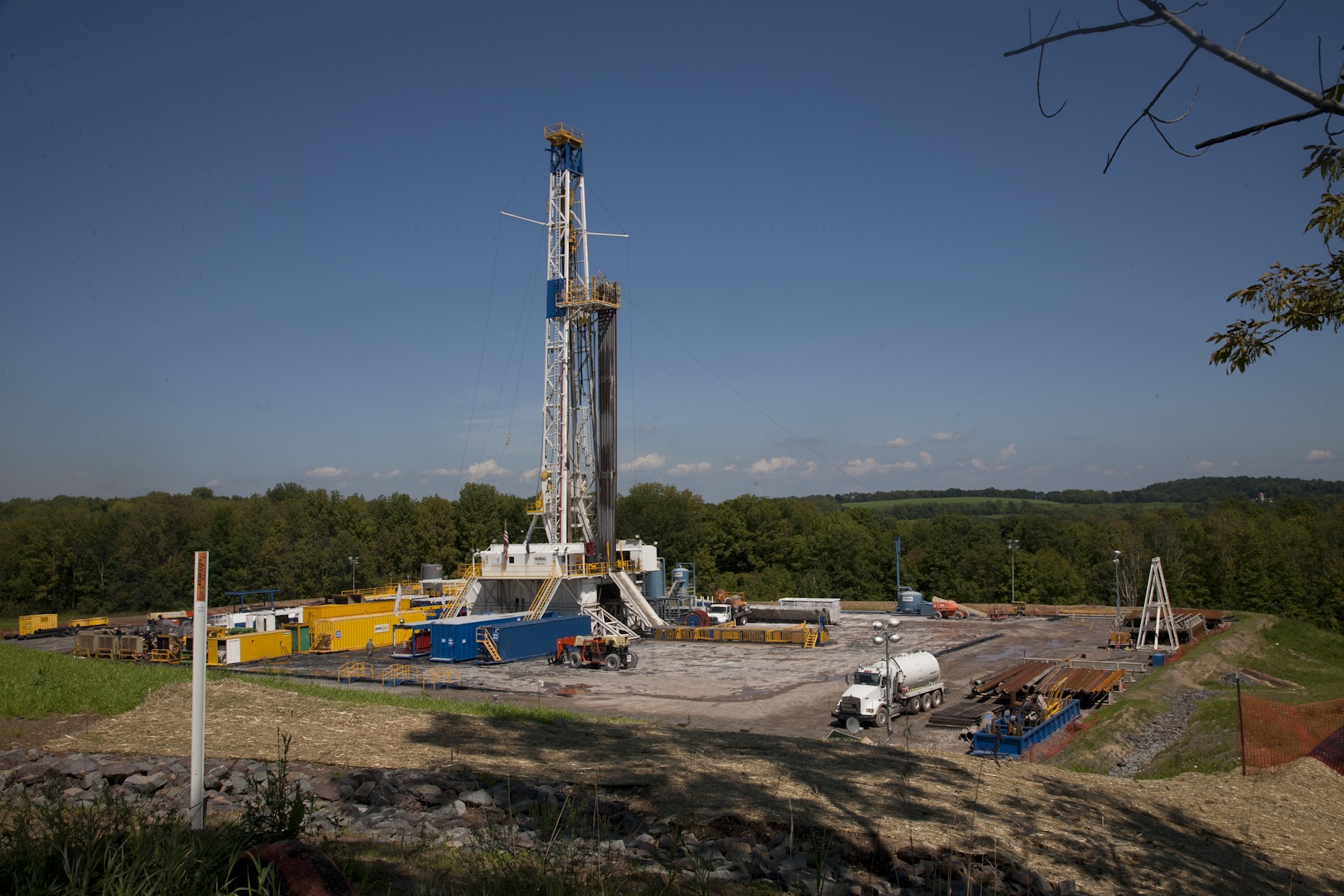EPA: Fracking process not harmful to nation’s supply of drinking water
 For a decade, anti-fracking forces have made wild, unsubstantiated claims that the process of fracking contaminates local drinking water. Now, the EPA has debunked that claim by conducting the largest study to date about the effects of hydraulic fracturing on the nation’s water supply, concluding there was no “widespread, systemic” drinking water pollution” connected with the process.
For a decade, anti-fracking forces have made wild, unsubstantiated claims that the process of fracking contaminates local drinking water. Now, the EPA has debunked that claim by conducting the largest study to date about the effects of hydraulic fracturing on the nation’s water supply, concluding there was no “widespread, systemic” drinking water pollution” connected with the process.
The study, more than four years in the making, said the EPA has found no signs of “widespread, systemic” drinking water pollution from hydraulic fracturing. That conclusion dramatically runs afoul of one of the great green crusades of the past half-decade, which has portrayed the oil- and gas-extraction technique as a creator of fouled drinking water wells and flame-shooting faucets.
The report also jibes with Obama’s global warming policies, which have openly promoted the use of natural gas as a more climate-friendly alternative to coal. But for both anti-fracking groups and the industry, it came as yet another example of Obama’s mixed messages on fossil fuels — from the same administration that has stalled the Keystone XL pipeline and pushed to wipe out the oil industry’s tax breaks, yet is also moving to open up much of the East Coast and the Arctic to offshore drilling.
“This study’s main finding flies in the face of fracking’s dangerous reality,” Rachel Richardson, director of Environment America’s Stop Drilling program, said in a statement. “The fact is, dirty drilling has caused documented, widespread water contamination across the country.”
In fact, the EPA found that last statement to be true as well. Fracking pumps millions of gallons of water mixed with toxic chemicals into the ground to separate the gas from the rock. That process does not cause water contamination. But there have been cases of contamination when drillers try to rid the site of the water-contaminated toxic chemcials and spills occur, with the toxins seeping into the soil and the water table.
Irresponsible handling of toxic waste is a problem that is being dealt with by both the industry and local governments who are tightening rules governing the disposal of the toxic waste water.
Thursday’s congressionally mandated EPA report, a compilation of past studies, found isolated incidents in which water pollution was attributable to the use of fracking. But it failed to back up the idea that fracking poses a major threat to water supplies, contradicting years of activists’ warnings dramatized by images of burning tap water in the Oscar-nominated documentary “Gasland.”
Those images have helped fuel a brush fire of grassroots resistance against fracking, a technology that has fostered energy booms in states like Pennsylvania and North Dakota while prompting authorities to ban the practice in places like New York state, Pittsburgh and even Denton, Texas.
I recall when Gasland came out that many engineers and scientists laughed at the flames shooting out of the faucet. Clearly, the methane came from another source unrelated to fracking.
But the industry is hardly out of the woods. One of the by-products of fracking is the release of large amounts of methane, which can gather in dangerous pockets near the ground and be ignited in rare cases, causing an explosion. That’s an issue still under study as the dynamics of methane emissions around fracking sites are poorly understood at this point.
Then there are the recent studies that purport to connect small earthquakes to the drilling process. There is no doubt that there have been large increases in these small, shallow tremors in states like Oklahoma and Texas. But scientific proof that they are only caused by fracking is in short supply. Until there are definitive studies that show a cause and effect relationship between fracking and earthquakes, the practice should continue.

corticosteroids symptoms
References:
https://git.techspec.pro/adolfokarpinsk